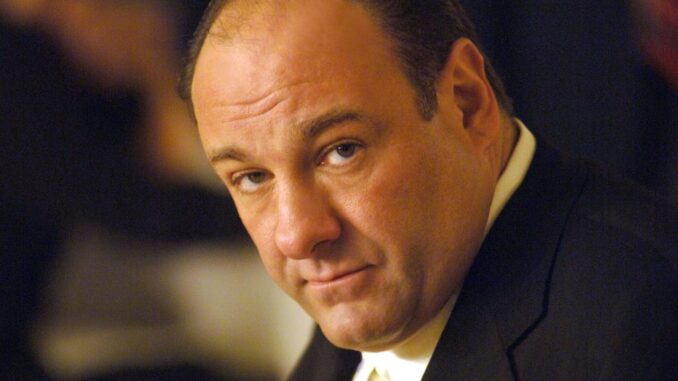
It’s been over two decades since The Sopranos first hit our screens, but somehow, we’re still talking about it like it never left. Why? Because it wasn’t just another mob drama—it was the mob drama that changed television forever.
Before Tony Soprano, there were plenty of great TV characters. But after him? Well, everything changed. From its groundbreaking storytelling to its unforgettable characters, The Sopranos set the gold standard for prestige television.
So, what makes The Sopranos still relevant 20 years later? Let’s break it down.
The Sopranos – A Game Changer for Television
Before The Sopranos, TV Was Different
Before The Sopranos, most TV dramas were predictable, episodic, and neatly wrapped up in 45-minute packages. The idea of following a morally complex antihero across multiple seasons? Almost unheard of.
But The Sopranos broke the mold. It introduced serialized storytelling, cinematic direction, and character-driven drama that would influence shows like Breaking Bad, Mad Men, and The Wire.
The Birth of the Antihero
Tony Soprano wasn’t your typical TV protagonist. He was a violent mob boss, but he also suffered from panic attacks, went to therapy, and struggled with his own morality. He made us question whether we should root for him or be disgusted by him—and that was revolutionary.
Without Tony Soprano, there would be no Walter White, no Don Draper, no Dexter Morgan.
The Sopranos’ Legacy in Pop Culture
Iconic Characters That Still Resonate
From the wise-cracking Paulie Walnuts to the hot-headed Christopher Moltisanti, every character in The Sopranos felt real. They weren’t just supporting players; they had depth, flaws, and unforgettable moments.
Even after 20 years, lines like “Oh, poor you!” and “A don doesn’t wear shorts!” still echo in pop culture.
Memorable Moments That Live On
- Tony’s first therapy session with Dr. Melfi
- Adriana’s shocking fate
- The infamous Pine Barrens episode
- That mind-blowing final scene
Each moment wasn’t just great television—it was history in the making.
The Ending That Still Has People Talking
The Most Controversial Finale in TV History
On June 10, 2007, millions of fans tuned in to watch The Sopranos finale—and then everything went black. Literally.
David Chase left us hanging with one of the most debated endings in TV history. Did Tony get whacked? Did he live? Was it all in his head? The ambiguity still fuels discussions, Reddit theories, and heated debates at dinner tables.
Why the Ending Still Matters
Some people hated it. Others called it genius. But one thing’s for sure—it made The Sopranos immortal. The conversation never ended, keeping the show alive long after its final episode.
The Sopranos’ Influence on Modern Television
Paving the Way for Prestige TV
Before The Sopranos, television was considered the lesser cousin of film. But after? TV became a serious art form, attracting Hollywood-level writers, directors, and actors.
Would we have Game of Thrones, True Detective, or Stranger Things without The Sopranos leading the way? Probably not.
The Birth of Streaming Culture
HBO took a massive gamble on The Sopranos, and it paid off. The show’s success proved that audiences were ready for high-quality, serialized storytelling—something that streaming services like Netflix and Amazon Prime later capitalized on.
Would binge-watching even be a thing without The Sopranos?
Why New Generations Keep Discovering The Sopranos
The Show Feels Timeless
Even though The Sopranos aired in the late ‘90s and early 2000s, its themes—power, loyalty, family dysfunction—are universal.
Sure, the flip phones and boxy TVs look outdated, but Tony’s struggles? They’re as real today as they were 20 years ago.
Memes, TikTok, and a Whole New Audience
You’d think a show about a middle-aged mob boss wouldn’t appeal to Gen Z, but The Sopranos is thriving online. From TikTok clips to Twitter memes, younger audiences are discovering (and loving) the show in ways no one expected.
The Sopranos’ Lasting Impact on the Mob Genre
How It Changed Mafia Stories Forever
Before The Sopranos, mob movies followed a formula—rise to power, big fall, tragic ending. But this show gave us something different: a long, slow-burning, deeply personal look at a mobster’s daily life.
What Came After?
Since The Sopranos, we’ve seen plenty of mob-inspired stories try to capture the same magic (Boardwalk Empire, Gomorrah, The Irishman). Some succeeded, but none quite matched the complexity of Tony Soprano.
Conclusion – Why We Still Can’t ‘Fuhgeddabout’ The Sopranos
Even after 20 years, The Sopranos remains the gold standard of television. It redefined storytelling, gave us unforgettable characters, and changed the way we watch TV.
From Tony’s therapy sessions to the show’s abrupt blackout ending, The Sopranos refuses to fade into history. It continues to find new fans, spark new debates, and prove that truly great television never gets old.
So, if you still haven’t watched The Sopranos, what are you waiting for? As Tony would say—“What’s a guy gotta do to get you to watch this show?”
FAQs
1. Why is The Sopranos still so popular after 20 years?
Because it changed TV forever! It introduced complex characters, cinematic storytelling, and one of the greatest antiheroes of all time.
2. What made Tony Soprano such an iconic character?
He was brutal yet vulnerable, charming yet terrifying. His internal struggles made him one of the most complex characters in TV history.
3. What’s the deal with The Sopranos’ ending?
The final scene cuts to black, leaving Tony’s fate up for debate. Some think he was killed, others believe he lived—but David Chase has never given a definitive answer.
4. How has The Sopranos influenced modern TV?
Without The Sopranos, we wouldn’t have shows like Breaking Bad, Mad Men, or Game of Thrones. It set the stage for prestige television as we know it.
5. Is The Sopranos worth watching today?
Absolutely! The themes, storytelling, and performances still hold up, making it a must-watch even decades later.